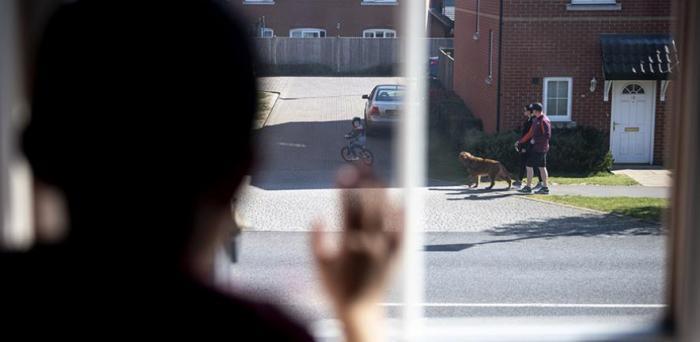The coronavirus outbreak caused life satisfaction to fall sharply, but lockdown went a long way to restoring contentment – even reducing the “wellbeing inequality” between well-off professionals and the unemployed, according to a new study.
Researchers from Cambridge’s Bennett Institute for Public Policy used a year’s worth of data taken from weekly YouGov surveys and Google searches to track wellbeing in the British population before and during the pandemic.
They say it is one of the first studies to distinguish the effects of the pandemic from those of lockdown on psychological welfare, as it uses week-by-week data, rather than monthly or annual comparisons.
The proportion of Britons self-reporting as “happy” halved in just three weeks: from 51% just before the UK’s first COVID-19 fatality, to 25% by the time national lockdown began.
This reversed under lockdown, with happiness climbing back to almost pre-pandemic levels of 47% by the end of May. Overall life satisfaction saw a similar drop when the pandemic took hold and a rebound during lockdown.
The study also suggests that while the “wellbeing inequality” gap remained wide, lockdown started to shrink it: some of the most deprived social groups saw a relative rise in life satisfaction, while the wealthy experienced declines.
“It was the pandemic, not the lockdown, that depressed people’s wellbeing,” said Dr Roberto Foa, from Cambridge’s Department of Politics and International Studies, and Director of the YouGov-Cambridge Centre for Public Opinion Research.
“Mental health concerns are often cited as a reason to avoid lockdown. In fact, when combined with employment and income support, lockdown may be the single most effective action a government can take during a pandemic to maintain psychological welfare.”
Image: Young boy peers out of his bedroom window during the coronavirus lockdown in the UK in April.
Credit: Benjamin Cooper
Reproduced courtesy of the University of Cambridge
